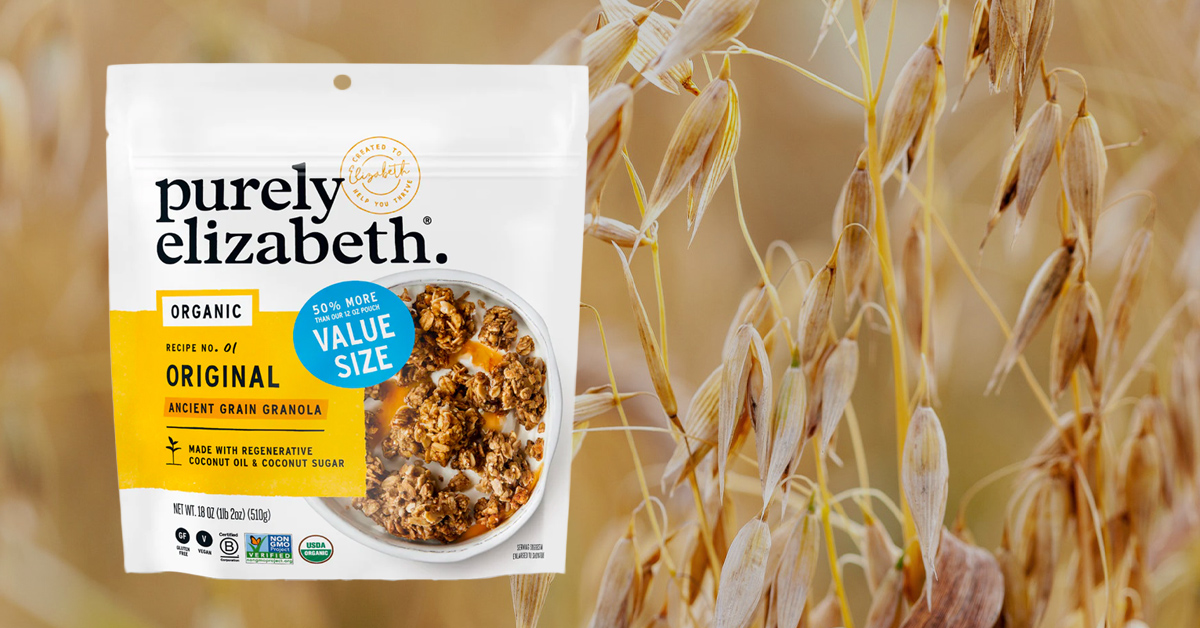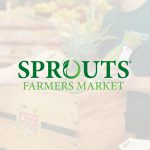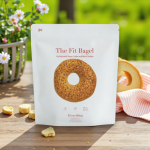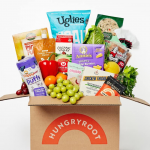Purely Elizabeth Goes Mad For Regen Ag, Launches Impact Program

Purely Elizabeth is ratcheting up its sustainability commitments with the launch of the first Regenerative Impact Program, created in partnership with farmer-focused nonprofit Mad Agriculture. The program was created via a three-year pilot partnership agreement between the two companies.
Concurrently, the ancient grain-based granola and breakfast brand will begin making changes to its supply chain and is aiming to source one-third of its ingredients from regenerative sources by 2026. Those new regenerative ag commitments will be reflected on the product end with Purely Elizabeth introducing a new 18 oz. value size of its best selling Original Ancient Grain Granola, made with Regenerative Organic Certified (ROC) coconut sugar and coconut oil, at Whole Foods stores nationwide this month for an SRP of $10.99.
“The scale of food production is enormous, but I believe it also is our greatest opportunity to make a positive impact,” said Elizabeth Stein, CEO and founder of Purely Elizabeth, in a press release. “We want to support the farmers who are taking on the challenging work to create a more regenerative food system. Working with the visionary team at Mad Ag was instrumental in getting us started.”
Through the Impact program, Purely Elizabeth will support existing supply partner farms as they transition to regenerative practices, beginning with 500 acres this year. The company has committed to buying all regeneratively grown oats from those farmers and will also sponsor scientific research and testing that aims to measure the impact of regenerative methods on soil health, water conservation, biodiversity and nutrient density through the program.
“The Regenerative Impact Program will provide a model to the food industry looking to source from a more regenerative supply chain,” said Elizabeth Candelario, director of strategic partnerships at Mad Ag, in a press release. “The Purely Elizabeth and Mad Agriculture partnership will showcase what regeneration actually looks like on a farm. It is not just soil carbon. It is not just biodiversity. It is a full system approach that views the entire farm operation as an ecosystem.”
Purely Elizabeth uses a variety of organic and non-GMO ancient grains including amaranth, chia seeds and quinoa across its portfolio of products. These specific inputs, when grown organically, are considered regenerative crops due to their positive impact on soil health. This leaves the company well positioned to expand sourcing beyond regenerative oats in the near term.
Mad Ag is also well positioned to help Purely Elizabeth accelerate through that transition with its network of regenerative ag-focused operations and partnerships. The four-branched nonprofit organization includes a financial arm (Mad Capital), a strategic growth entity (Mad Lands), a connective arm (Mad Markets) and a creative outlet (Mad Media). The organization has claimed it can accelerate transition timelines due to its resources and expertise in the space and likely will be well positioned to support Purely Elizabeth as its commitments evolve.
Purely Elizabeth’s investors have notable interest in regenerative ag as well. The company first secured $3 million in 2017 from 301Inc., General Mills’ investment vehicle; the global food company itself has committed to transitioning one million acres of farmland to regen by 2030. In January 2022, Purely Elizabeth announced the close of its second capital raise, this time from private equity firm SEMCAP, which is led by John Haugen, the former general manager of 301Inc.. At the time of the investment, Haugen said the firm’s food and nutrition division was focused on investing in brands that are helping reimagine the food system.


















